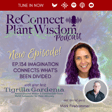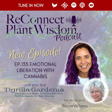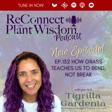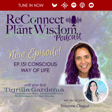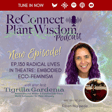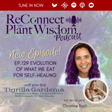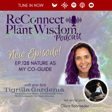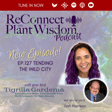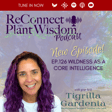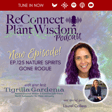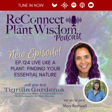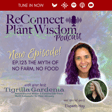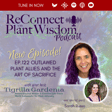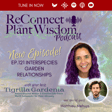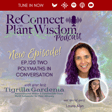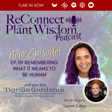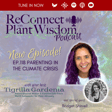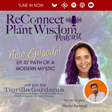
Ep.83 Three Lessons from Plants to Increase Productivity
In this episode, I'm giving you three powerful lessons from plants that have transformed how I view productivity. We'll explore how embracing ecosystem thinking, being fully present, and fostering meaningful connections can help you align with natural rhythms and live a more fulfilling life.
These insights from my journey with plants have redefined my understanding of what it means to be productive, and I'm excited to share them with you. Join me to learn how you can apply these lessons to your own life and find a new way of being.
Topics Covered about Productivity
➡️ Ecosystem Thinking: Interconnectedness and adaptive cycles in natural systems.
➡️ Presence: The importance of being fully present and aware.
➡️ Interaction and Connection: Value of diverse and symbiotic relationships.
Resources Mentioned
- Reconnect with the Plant Kingdom and Plant Inspired Masterclasses
- Befriend Your Limiting Beliefs interactive webinar
- Become a Blooming Sprouts
- 1:1 Mentorship with Tigrilla and Plants
🌟Connect with nature-conscious creatives, multipotentialites, and naturentrepreneursin the premier online ecosystem that nourishes plant reawakening and community support for accelerated evolution and co-creation with otherkin. >> JOIN OUR COMMUNITY <<
☝🏽ReConnect with Plant Wisdom podcast Ancient and modern knowledge from biology to spirituality about the wondrous ways plants help you lead a Naturally Conscious life. Subscribe on your favorite podcast player.
// Let's work together: book a Discovery Call
// EcoConscious Business Partners:
Listen to the Music of the Plants
Shop Here
// Opening and Closing music by Steve Sciulli and Poinsettia from The Singing Life of Plants
// Socialize with me Facebook | Instagram | LinkedIn | Youtube

